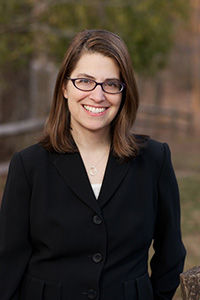By Philip Sean Curran, Staff Writer
Mayor Liz Lempert said Monday that town-gown relations with Princeton University have improved in the past three years on her watch, with her pronouncement coming ahead of a scheduled visit by the school’s president to the Princeton Council next week.
Mayor Lempert, whose husband, Ken Norman, is a tenured university professor, expounded on how the two sides of Nassau Street cooperate better than in past years. She said that fits into the broader way the town seeks to foster partnerships, something she intends to highlight at her speech Jan. 4 at the annual council reorganization meeting.
“I think we’ve made a lot of strides in terms of having a more productive relationship that has benefits for the residents,” Mayor Lempert told reporters at her press conference.
“There’s things about the university that tremendously benefit this town. I don’t think that we would have the cultural scene we do, the intellectual scene we do, even be able to have the kind of vibrant shopping district that we do if it weren’t for the university,” she said. “But there’s definitely challenges that come with having a large institution like that.”
Her comments come with university President Christopher L. Eisgruber due to meet with the Princeton Council on Dec.14 at 7 p.m., in the former Borough Hall. This will be the third such meeting he has had with municipal officials since he became president in 2013, a time for them to hear from and ask him questions.
The thaw in town/gown relations began that year. A newly consolidated Princeton and a first-year mayor came into being not long before Mr. Eisgruber became the 20th university president. Both sides tried to move past the acrimony that dominated the debate over relocating the Dinky, the shuttle train that goes from the Princeton station to Princeton Junction.
Mayor Lempert said the rapprochement was “mutual” in that there was a chance for a “fresh start.”
“It’s been very healthy to re-establish regular lines of communication,” said university Vice President and Secretary Robert K. Durkee on Tuesday.
“And we’ve worked to make that a productive relationship. And part of that is just keeping the lines of communication open,” Mayor Lempert said in calling the university one of our “biggest partners.”
She said that she and Council President Bernard P. Miller meet quarterly with Mr. Durkee and director of Community and Regional Affairs Kristin S. Appelget.
Those regular meetings had gone on for decades in the borough, she said, but they stopped before consolidation amid a “fractured” relationship between the two sides. Mr. Durkee confirmed that he had had regular meetings with past borough mayors for many years.
Mayor Lempert said the meetings have allowed both to work through “some procedural issues,” such as the school taking on a greater role in local transportation amid the departure of a NJ Transit bus to University Medical Center in Plainsboro. She said they have not involved policy discussions.
Yet word of those meetings came as a surprise to Councilwoman Jo S. Butler. She said Monday that she only learned a few weeks ago that the meetings had been going on. She said council members have never been asked for input on what will be discussed at them nor have they been told what takes place at them.
“I was stunned to find out that they were meeting with the university surreptitiously,” she said.
Ms. Butler has been firm about raising the issue of Mayor Lempert’s conflict of interest with the school, given her husband is a university employee. Mayor Lempert was asked about the conflict on Monday.
“And if there’s ever an issue that I need to recuse myself on, I do,” she said. “I know certain things, there’s not a problem at all. If it’s something where we’re talking about a land use ordinance, I would recuse myself. Most of the time, it hasn’t been an issue.”
She said other mayors of Princeton have had a connection to the university. “And you just work it at a case-by-case basis,” she said.
Mayor Lempert said the town has been invited to the university’s Board of Trustees each year. She also talked of how the relationship between local police and the University Department of Public Safety “has been the most productive and collaborative it ever has been.” She said police Chief Nicholas K. Sutter and the head of the public safety meet monthly; both administrative staffs also meet monthly.
“And there’s real benefits of that to public safety,” she said. “They’re able to focus on sharing resources when they’re able to, sharing trainings when they’re able to, sharing more information than they ever have.”
In past years, the two sides had clashed over “who was in charge,” she said, but that’s changed to a “more collaborative” relationship.

